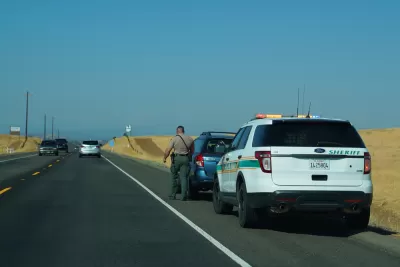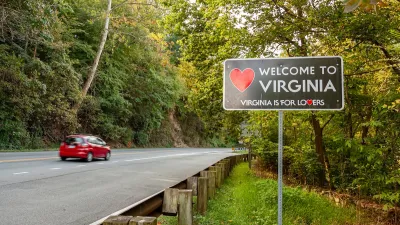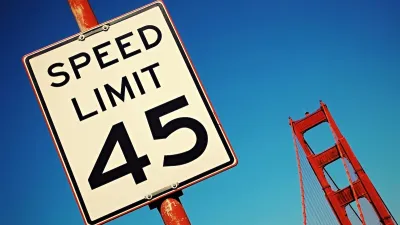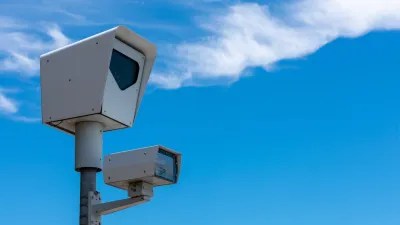A new book makes the case that revenue-oriented traffic policing has far-reaching negative impacts and often fails to improve traffic safety.

In a piece for Streetsblog USA, Kea Wilson describes the thesis of a new book that “argues that America's approach to traffic policing isn't truly designed with safety in mind because it's fueling a dangerous carceral cycle that may actually leave our communities more deadly, car-dependent, and oppressive to us all, especially the most vulnerable.”
The book, Cars and Jails: Freedom Dreams, Debt and Carcerality by Julie Livingston and Andrew Ross, lays out the evidence for their claim. “In some ways, Livingston and Ross argue, extractive fines and extreme police harassment for even the most minor vehicle violations have been an integral part of motordom since its beginning, particularly for the people of color who shoulder an overwhelming majority of both burdens.”
That tendency increased when tax rates were reduced in the 1970s and 1980s, forcing cities to look to new sources of revenue. “Today, much of America's $4 trillion municipal bond load is directly backed by what banks believe will remain a stable stream of money extracted from road users by police and the courts.”
The consequences ripple far beyond fines, impacting road safety. “Because so many Americans live in car-dependent places, a lot of drivers with suspended licenses have no choice but to keep driving anyway — and if they hit someone, they're far more likely to flee the scene and leave their victim to die.” Meanwhile, punitive systems ensnare people in a cycle of fines and jail time, even for violations that didn’t threaten public safety.
FULL STORY: How Some Traffic Fines and Fees Can Make Our Roads More Dangerous

Alabama: Trump Terminates Settlements for Black Communities Harmed By Raw Sewage
Trump deemed the landmark civil rights agreement “illegal DEI and environmental justice policy.”

Planetizen Federal Action Tracker
A weekly monitor of how Trump’s orders and actions are impacting planners and planning in America.

Why Should We Subsidize Public Transportation?
Many public transit agencies face financial stress due to rising costs, declining fare revenue, and declining subsidies. Transit advocates must provide a strong business case for increasing public transit funding.

Judge Orders Release of Frozen IRA, IIJA Funding
The decision is a victory for environmental groups who charged that freezing funds for critical infrastructure and disaster response programs caused “real and irreparable harm” to communities.

‘Clybourne Park’ Sets Stage for Housing Equity Discussions
Clybourne Park, a play exploring race, real estate, and community tensions, can set the stage for discussion on the lasting impacts of housing discrimination, gentrification, and the fight for affordability.

Understanding Road Diets
An explainer from Momentum highlights the advantages of reducing vehicle lanes in favor of more bike, transit, and pedestrian infrastructure.
Urban Design for Planners 1: Software Tools
This six-course series explores essential urban design concepts using open source software and equips planners with the tools they need to participate fully in the urban design process.
Planning for Universal Design
Learn the tools for implementing Universal Design in planning regulations.
Caltrans
Smith Gee Studio
Institute for Housing and Urban Development Studies (IHS)
City of Grandview
Harvard GSD Executive Education
Toledo-Lucas County Plan Commissions
Salt Lake City
NYU Wagner Graduate School of Public Service





























